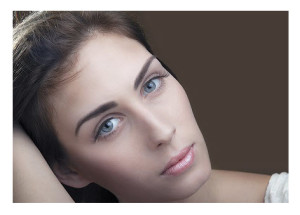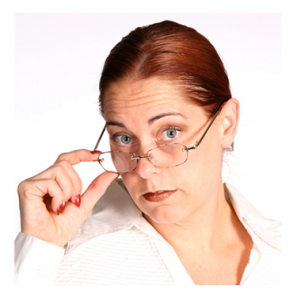The topic of “looksism” — a term coined in recent years for bias based on looks — is one raised in the media occasionally. Most of us understand that looksism is taken less seriously than racism, ageism, or any number of other prevalent types of discrimination we have yet to fully address as a society. After all (we tell ourselves), isn’t it human nature to respond positively to people and things we find beautiful, and to turn away from those that are not?
 Still, when a column on The New York Times takes up the issue, we might want to reconsider looking askance at what isn’t so benign as we may suppose.
Still, when a column on The New York Times takes up the issue, we might want to reconsider looking askance at what isn’t so benign as we may suppose.
Specifically, “Being Dishonest About Ugliness,” an opinion piece written by a very attractive Australian woman, appears to have raised the ire of many.
As for the article itself, Julia Baird’s focus is the parental view, and how we address potentially problematic appearance issues in our children as they suffer “the savage social hierarchy of “lookism” that usually begins in the playground.”
Ms. Baird refers to Australian author Robert Hoge, a man born with a tumor on his face and deformed legs, whose family ‘took a vote’ as to whether or not to bring him home from the hospital. She expresses Mr. Hoge’s perspective as follows:
… children are relieved when a grown person talks to them candidly about living with flawed features in a world of facial inequality. It’s important they know that it’s just one thing in life, one characteristic among others… That appearance, in other words, means something but it doesn’t mean everything.
At first blush, you may find yourself nodding and thinking, yes, we need to ground our children in reality, the better to arm them against hurt, albeit in the right way at the right time. In doing so, we reinforce their excellent substantive qualities (and those they can develop) while putting physical “flaws” into perspective.
That said, it is the comment section of The Times piece that fascinates me. Remarks range from disapproving parents who believe we should always make our children feel that we see them as beautiful — don’t we? — to those who tell their tales of struggling with looksism, whether based on features, height, weight and so on. Adding fuel to the fire, some Times readers exhibit irritation that an attractive woman would recommend that we address “ugliness” in candid fashion, as she herself cannot know what it means to live with the bullying, the bias or the invisibility that comes of not conforming to cultural standards of acceptable appearance.
Among the comments that caught my eye:
… while beauty is only skin deep, it’s all you get to see. And from that, judgments are formed… It’s not just on people’s physical appearance. Fruits, curb appeal on housing, the right clothes, displays in general, pretty packages…
Here is another, of the more indignant sort:
… I find myself offended that a person who fits both cultures’ [American and Australian] paradigm for attractiveness, and whose picture demonstrating this is posted at the top of the article for all to see, is telling us that those who aren’t as non-ugly as she is (i.e. most of humanity) should accept our biologically-determined place in the world as the ugly people we are instead of questioning the metrics we use by which we judge attractiveness – perhaps because doing so would rob Ms. Baird of her biologically-determined aesthetic superiority.
Ouch!
Another reader points out how the ugly duckling in youth may become the swan in (his or) her prime, and with aging, those who were once attractive may become far less so. On that topic, I can’t help but comment that one of the (theoretical) pleasures of aging, or perhaps I should phrase it as a source of “relief” rather than pleasure, is fewer expectations of who we are based on how we look. I say theoretical because our social media world and our hybrid (non-employment) workforce both make self-promotion — and visual appeal — key to the survival of many, regardless of age.
Still, without question, for some men and women “of a certain age,” there is greater freedom to disregard the rigors of appearance as they once clung to them — particularly if they aren’t compelled to seek a (new) mate or forge a (new) living.
But is this really the case? Is it really the case for women? Aren’t we always going to judge by appearance as long as our cultural values continue to place so much emphasis on the visual? And is it realistic to be able to spare any child or teenager, even one who is simply “not beautiful” in his or her own mind?
Ms. Baird clearly wishes we wouldn’t attribute character to physical traits, and I couldn’t agree more.
She writes:
… Perhaps it’s the long association of physical ugliness with immorality that we need to unpack. The Oxford Dictionary includes in its definition of ugly in English “morally repugnant.”
Of course, saying that we agree and acting on it are often two different things. Data proves this out, even when it comes to compensation statistics, showing that we pay good looking (thinner, taller) people more than their “unattractive” (heavy, short) counterparts.
As a mother, I understand the need and desire to encourage every child to feel loved and emotionally whole. I also know that we must be the vessel for a child’s anger, fears and insecurities — within reason, we might add — in part so he or she can develop the tools to function in an often callous world.
Does this leave us to individual cases — the nature and temperament of the child involved, the context and environment, the parents and peer group?
Probably.
 Does this lead us to several other conclusions?
Does this lead us to several other conclusions?
Likely so.
To pretend that looksism doesn’t exist is to deny the obvious. To make generalizations — from exceptions to the rule (like Mr. Hoge?) — may be inspiring to some, and foolish to others. Equally foolish — contending that we don’t care about appearance or beauty; we know we do. And appreciating beauty feels to me like one of those great (free?) pleasures of the human condition — from basking in a lovely countenance (however we define it) to viewing a modern art masterpiece.
Yet isn’t it simplistic to declare that we will always judge people by appearance, and that’s just the way it is? Sure, curb appeal is critical when selling a house, but you make damn sure its foundation is solid, its rooms suit your needs, and there are no hidden risks in the materials used and the electrical systems. So perhaps the home buying analogy doesn’t hold too well. Besides, didn’t we once make similar assumptions about the color of a person’s skin? Aren’t we still making some of the same assumptions about gender?
We live in an increasingly superficial world. It behooves us to remember that we should take our time, get to know individuals, and step away (at least occasionally) from our dizzying array of Photoshopped faces and bodies.
It comes down to values and also, in my opinion, habit. And not only personal values, but cultural values which, of course, pervade our personal standards of what is and isn’t worthy — including what constitutes a beautiful face. As media continues to “shrink” the world, increasing homogeneity in beauty standards is unavoidable to a degree. But if our online communities can spread so much sameness across vast distances, couldn’t they also spread our glorious diversity?
Call that wishful thinking. Or, if you prefer, call me a dreamer. Yet I can’t help but like that idea — and would hope to model it among my friends and for my children — from the plain to the “peculiar,” and every conceivable variation of size, shape, color and texture in between.
You May Also Enjoy
[…] isn’t just about these topics, it digs into issues surrounding them. My favourite post, Looking Askance at Looksism is informative, thought-provoking and very wise. I was excited last summer to be asked by DA […]